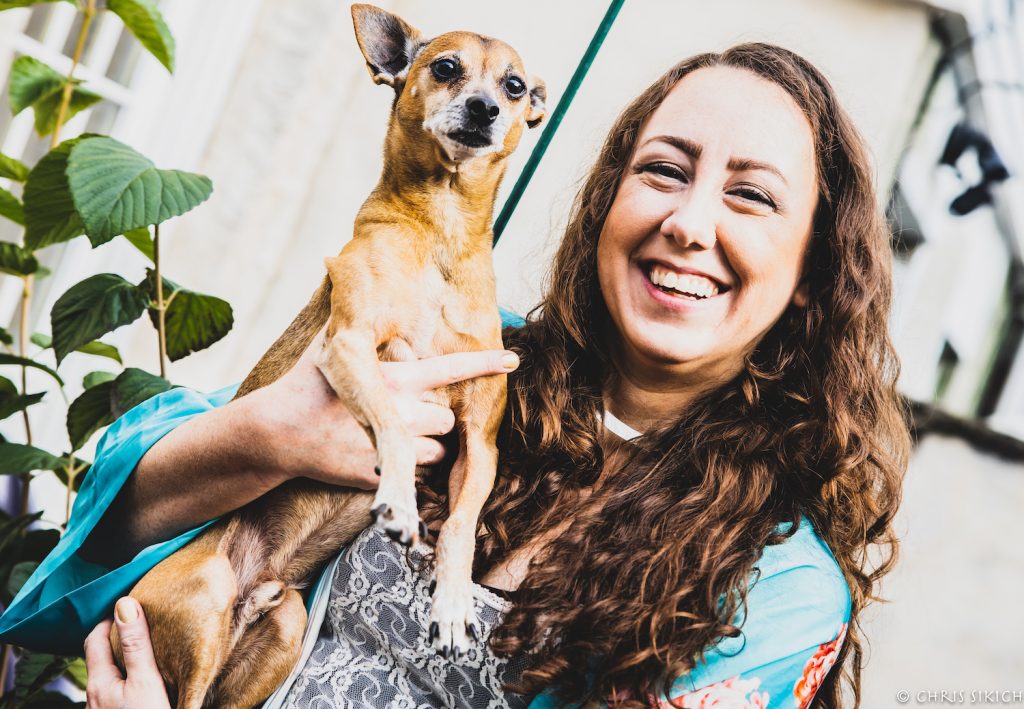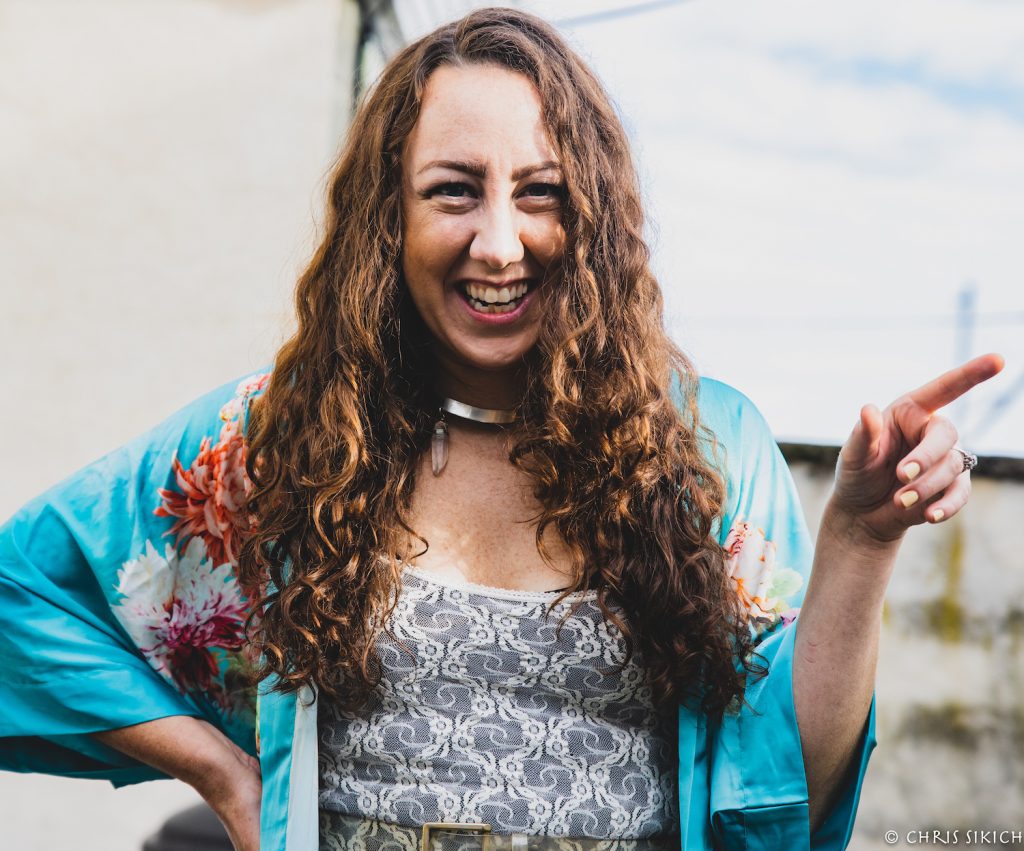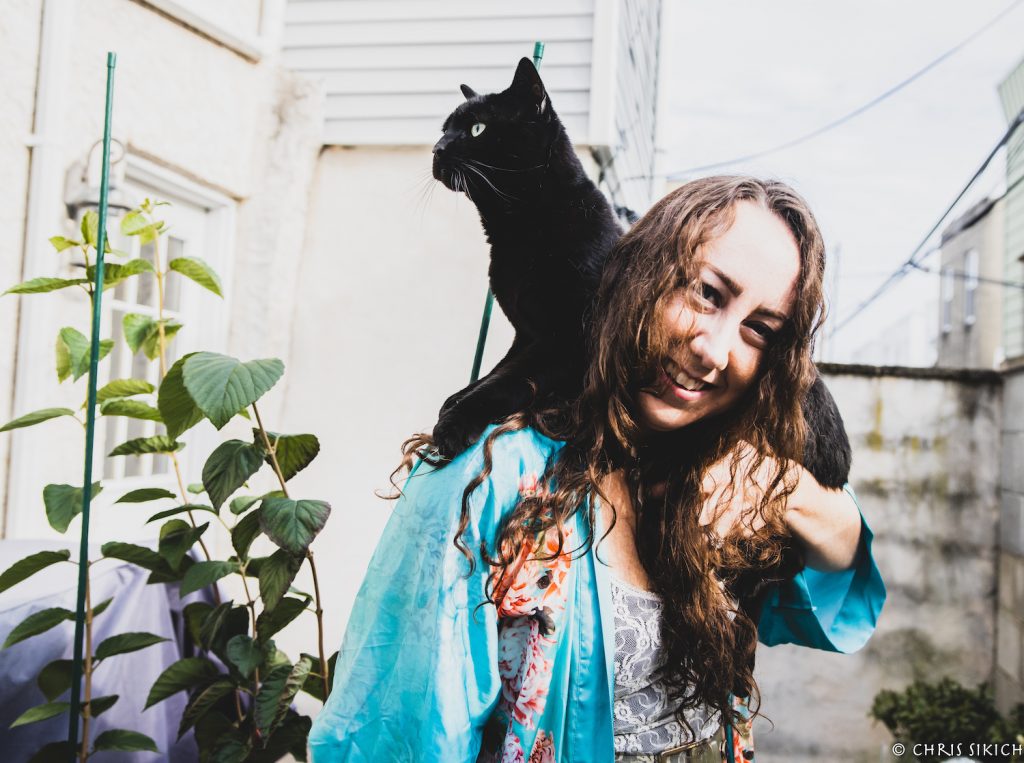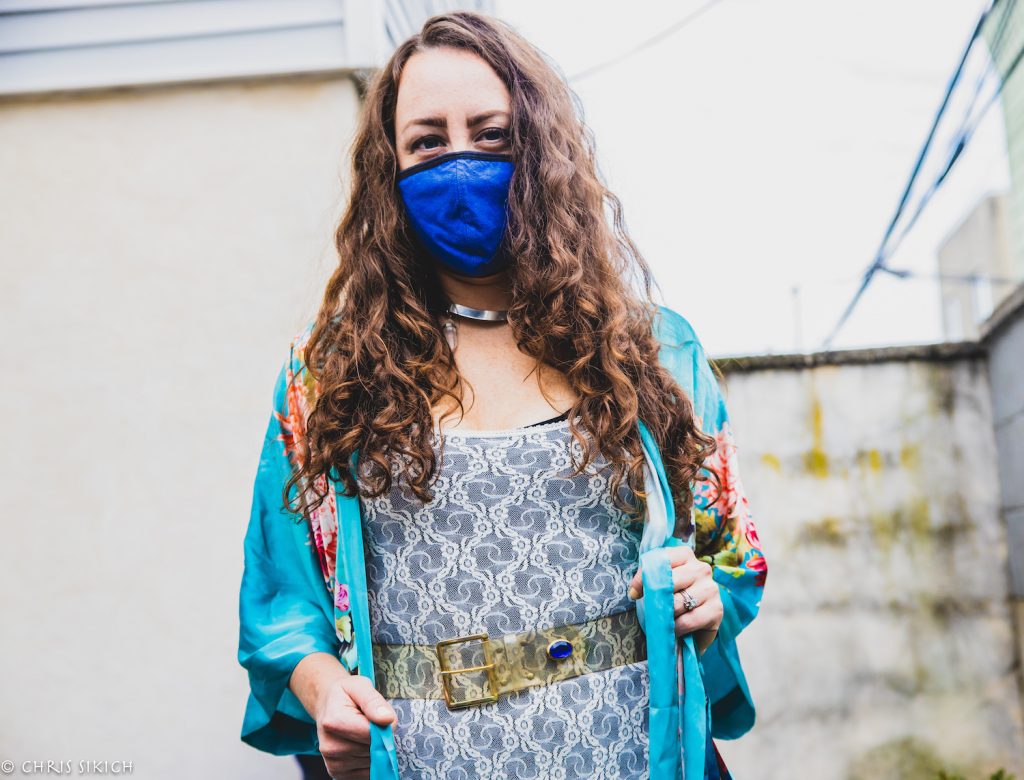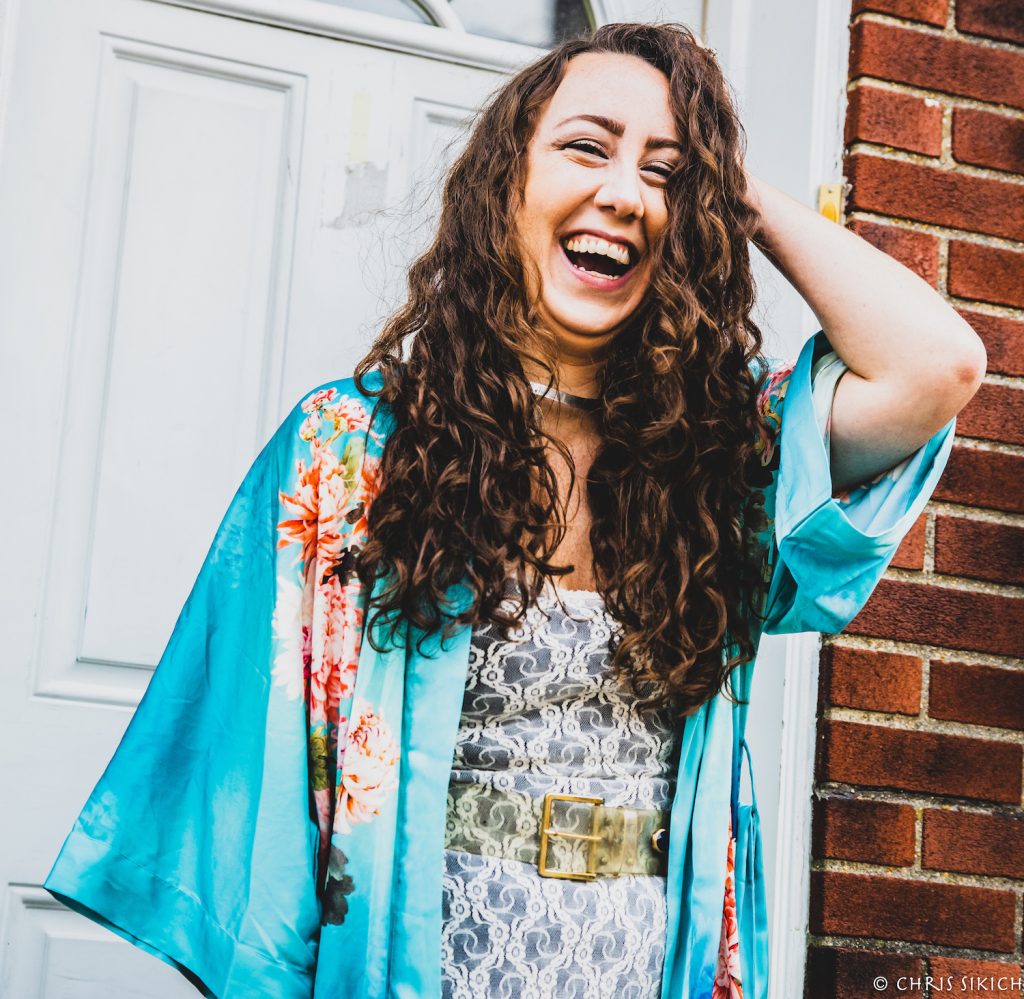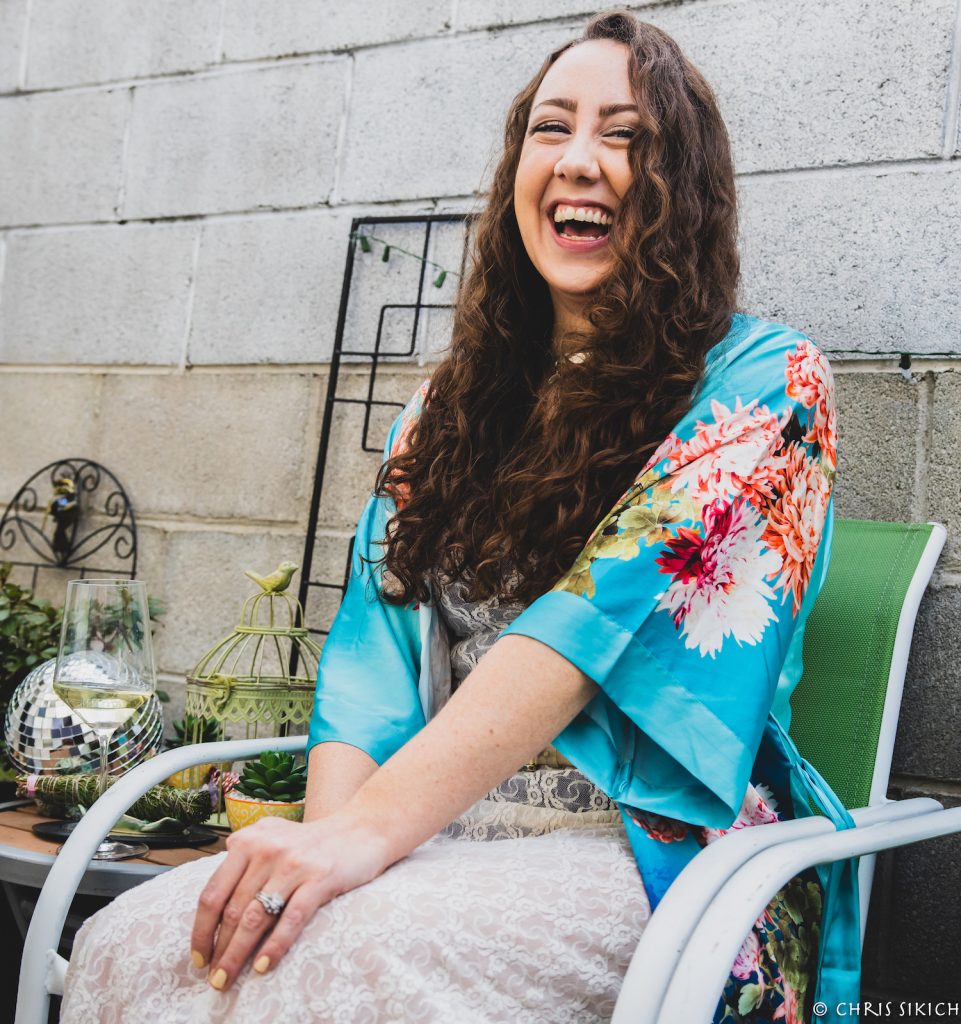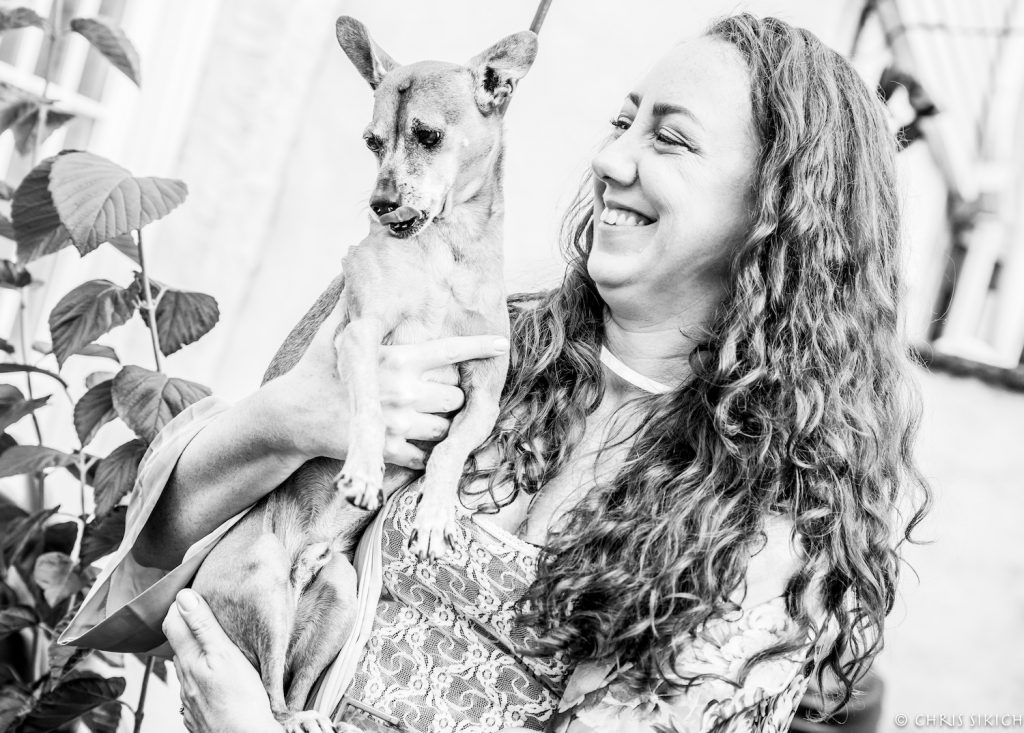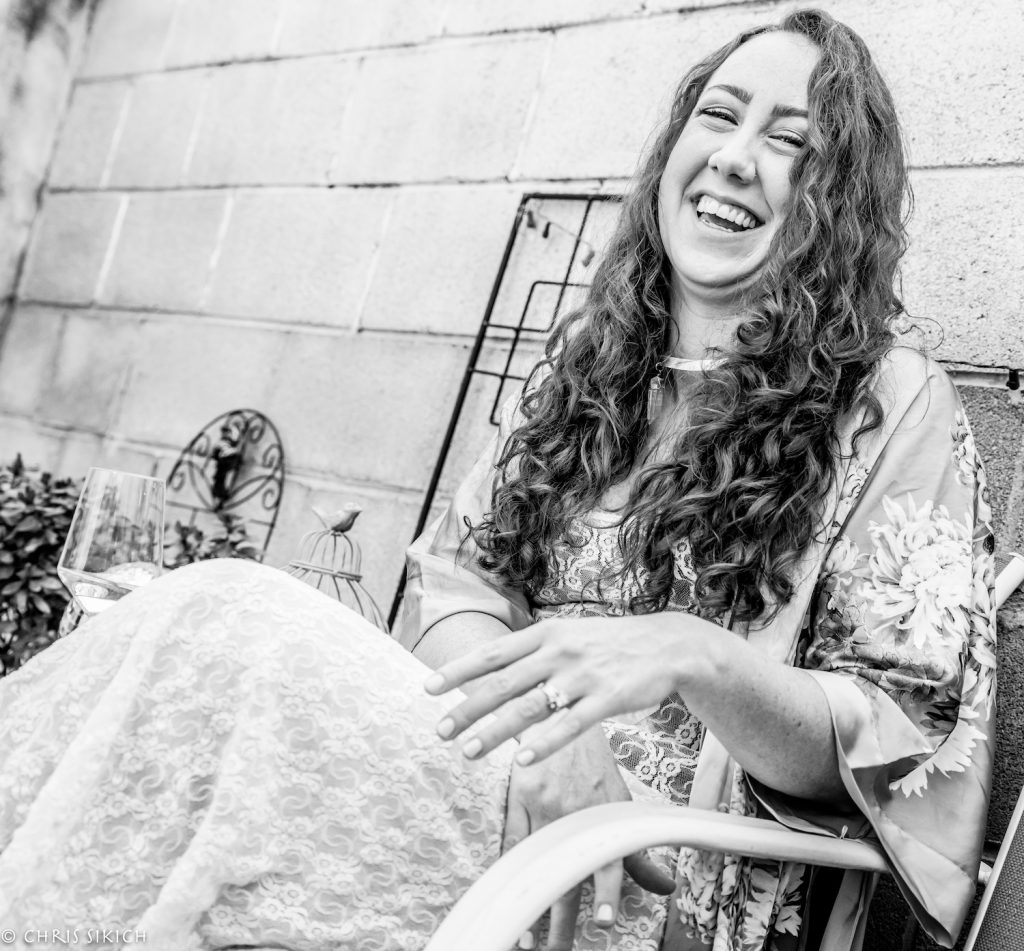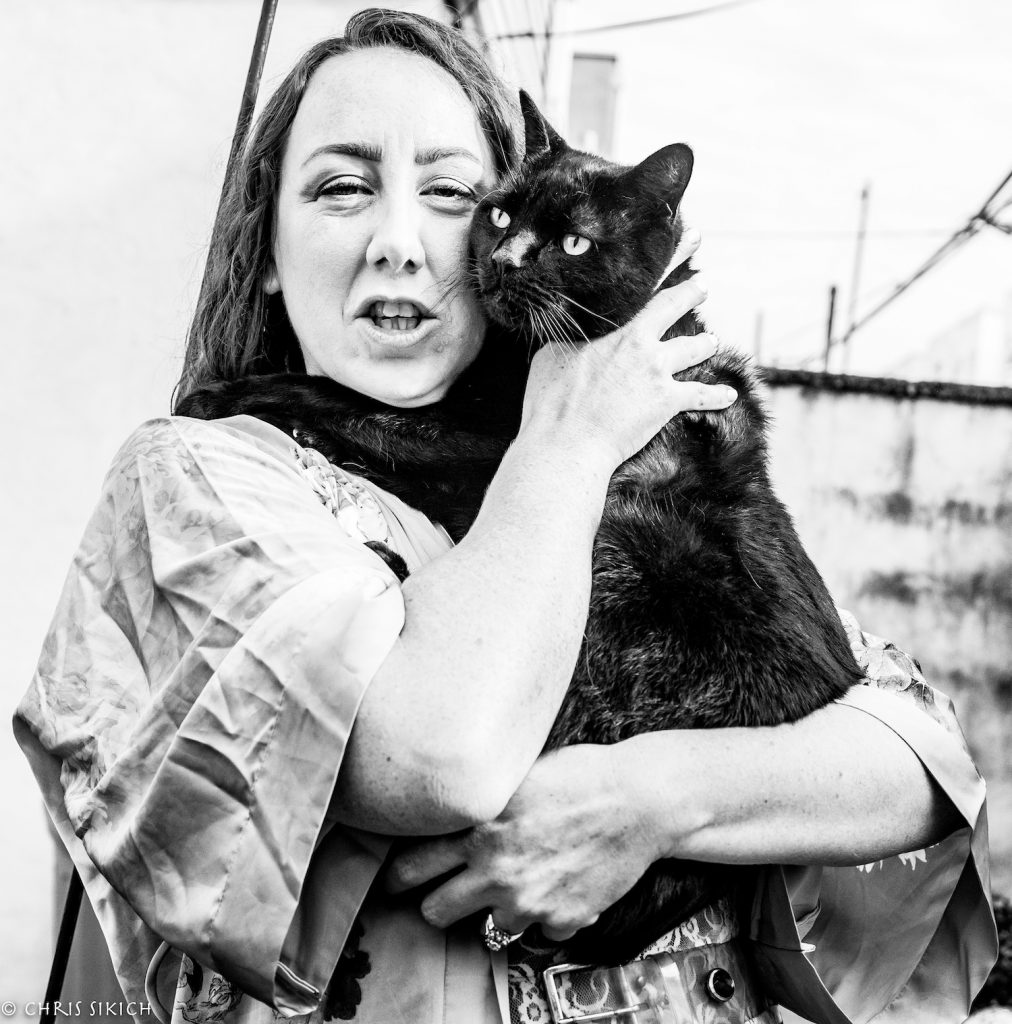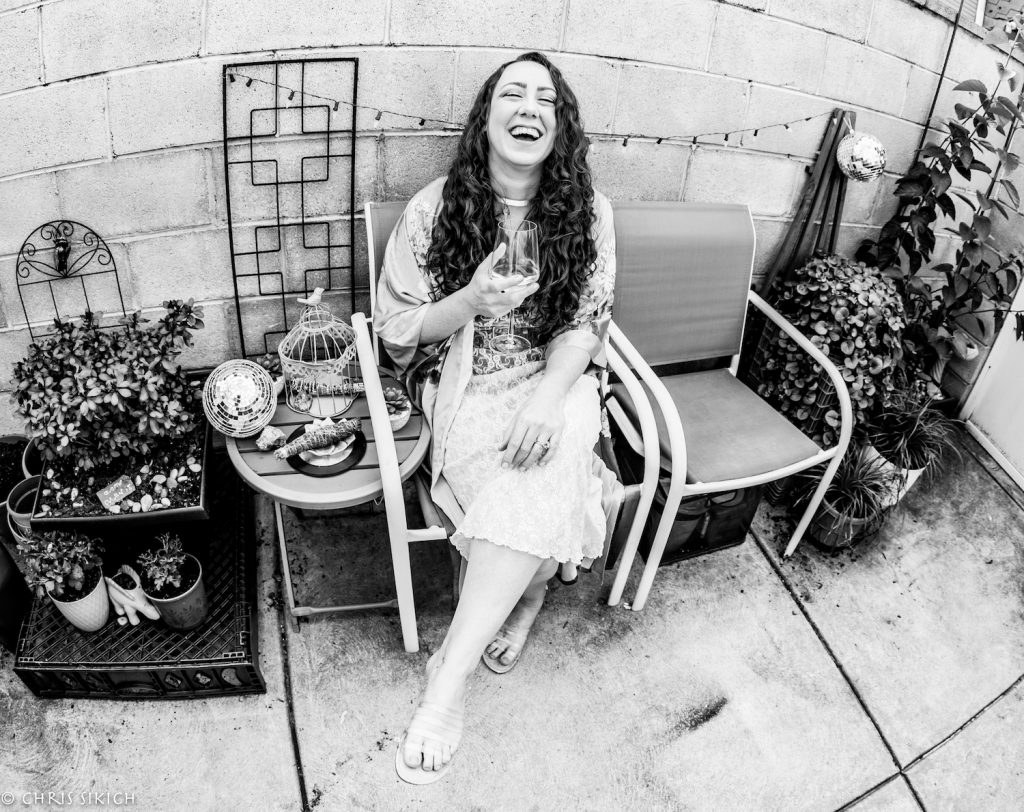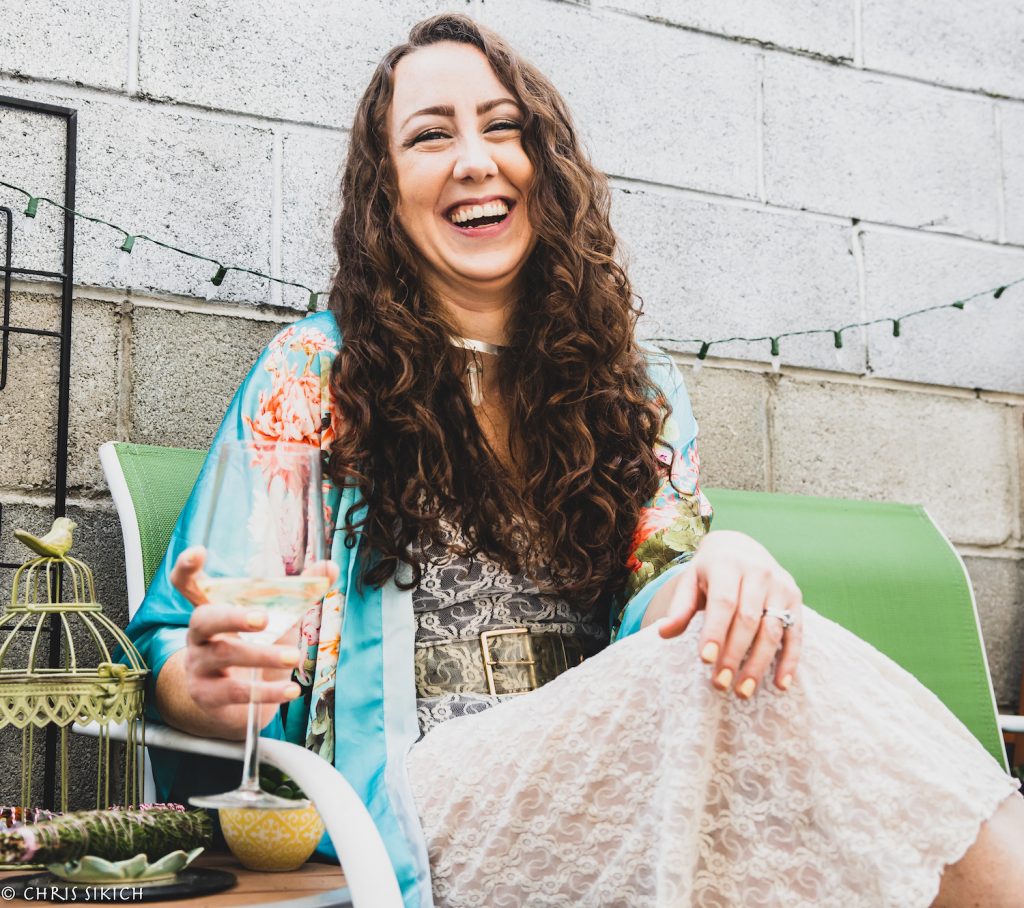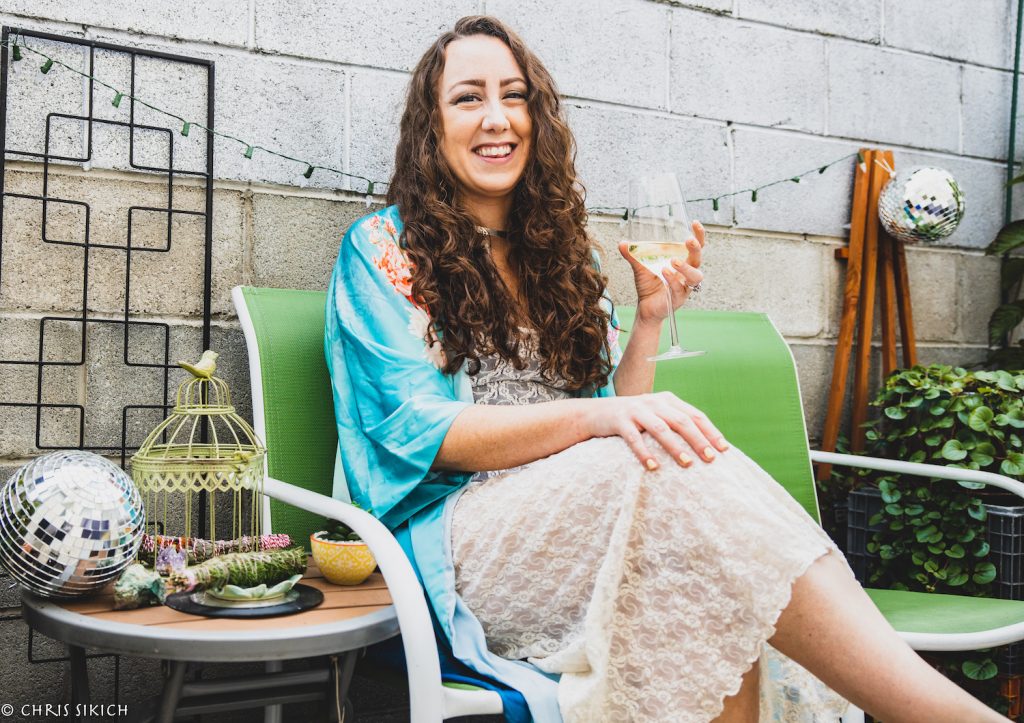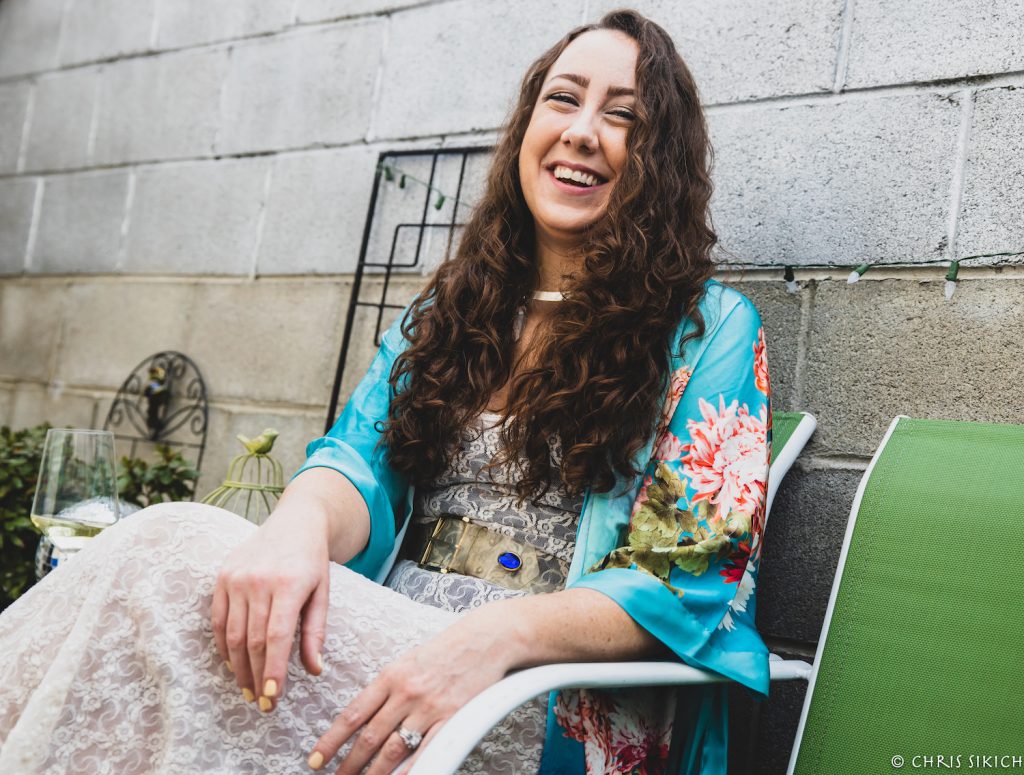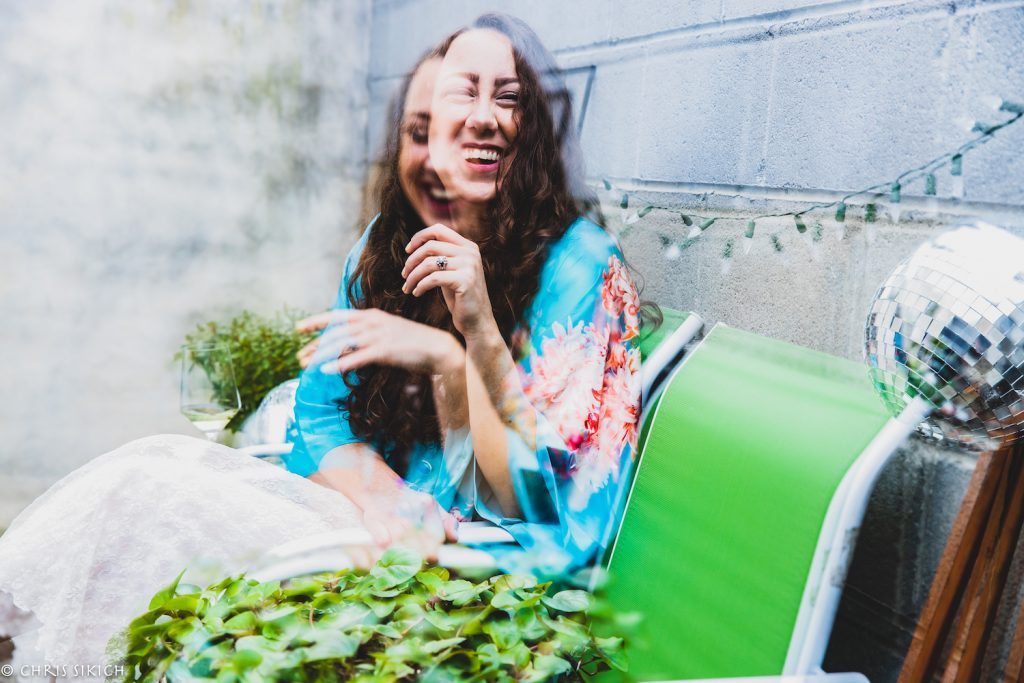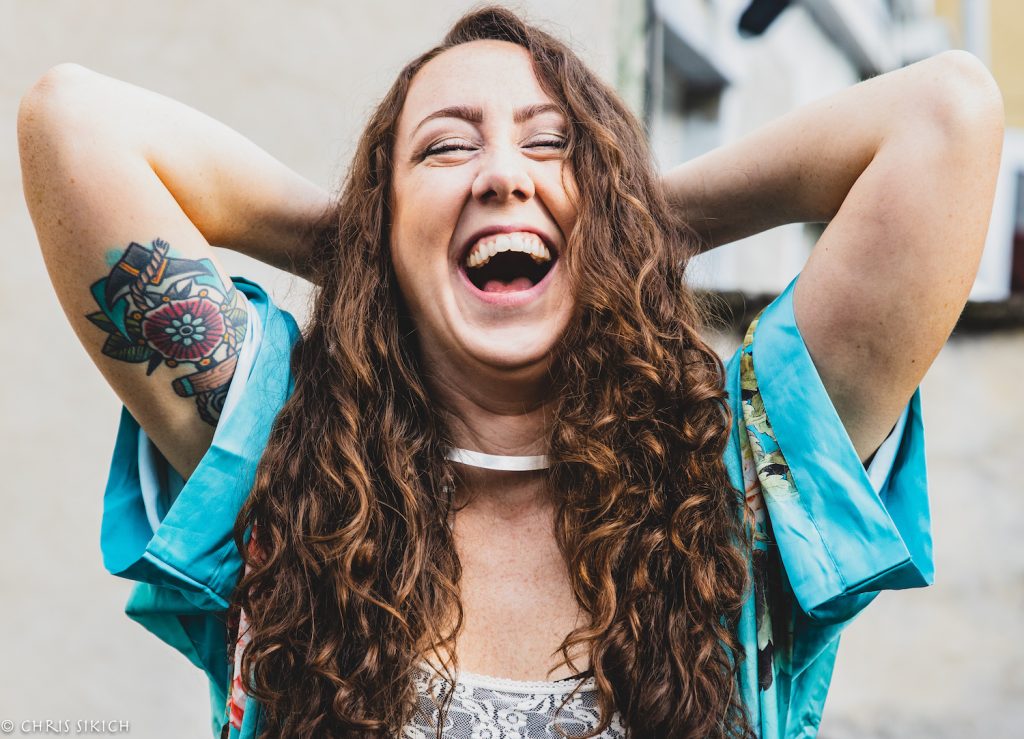
Like the majority of you, all of us in the Philadelphia area are staying at home, learning to adapt to our “new normal.” MAGNET is checking in with local musicians to see how and what they’re doing during this unprecedented time. Photos by Chris Sikich.
Feeney: When the global pandemic got real in March, I was fairly quick to accept it, which allowed me to adapt quickly—at first—and with some degree of optimism. But if I’m being honest, now that the entire year has passed me by in a disorienting whirl, I realize how profoundly COVID-19 affected me mentally, physically and financially.
My husband Drew Parker and I have a seven-piece funk-rock party band called You Do You, which has been our main project for the past eight years. Like any hard-working band, we definitely thought 2020 would be our year. So much so that in the fall of 2019, I quit my full-time salaried job as the development director at Rock To The Future, where I’d been working for more than six years, to finally try to “make it”—and by that I simply mean to pay my bills doing what I love the most: music and entertainment.
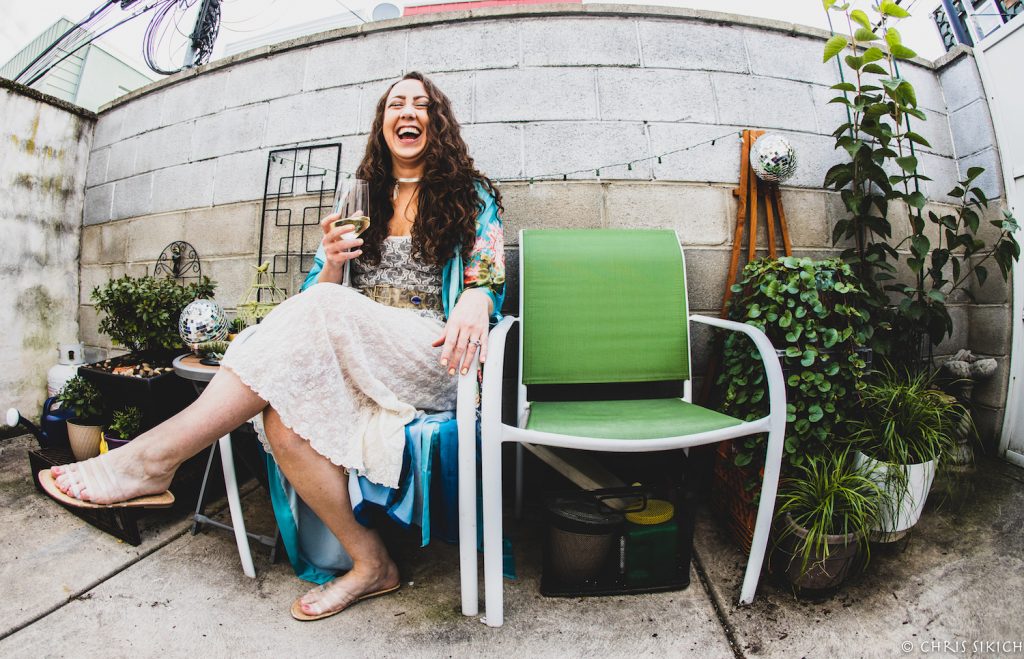
We had some cool summer fests booked, You Do You was wrapping up the recording of our next full-length concept album, Funky Dinos, and I’d also just launched my solo country-pop act, Roberta Faceplant, while simultaneously singing with a few different cover projects before striking gold with my Pink Floyd cover band, Phloyd, who had just sold out 300 seats at The Newtown Theatre in February.
With a full-time nonprofit job (and a few other side jobs on top of that, like hosting open-mic night at Connie’s Ric Rac and working on a TV show called Brightstar Buzz), I was never able to give my music my all. I knew I’d never forgive myself if I didn’t try. Well, it proved to be a hell of a year to try!
You Do You had some luck with our first single from our forthcoming Funky Dinos album, “Live It Up,” which we released in November 2019 and got some serious airtime on WXPN. I would say the band was about 90% done with the new album last March (and still is, frankly) with plans to do a big release this year. But those plans quickly changed.
When the first lockdown happened in March, Drew and I really threw ourselves into the first wave of livestreaming. We performed an hour-long, virtual happy-hour concert every single Friday from March through June. We were having a lot of fun at first—it was more like an interactive variety show than a typical live-band show—with costume changes and planned comedy bits.
At first, it was energizing to see how we could make each week’s offering better than the last, and honestly, we were making more money on internet tips than we would for most full-band shows. Performing for a live audience is my joy, but as someone who struggles with their mental health, it was actually a relief to suddenly not have to deal with familiar thieves of said joy like comparison, jealousy and rejection that quite literally come with the gig.
That relief didn’t last very long as I watched our calendar clear out completely. At the same time, I was simultaneously passing on numerous paid, in-person offers that didn’t feel safe even though my heart and soul wanted nothing more than to sing. Folks warned of burnout from livestreaming, which I scoffed at until it took a hold of me big time.
It was about the same time people started tuning out and going back outside, for better or worse, that we stopped. Before that happened, we were very fortunate to do a few paying virtual gigs as a duo, including the Conshohocken Arts Festival, for which all the virtual performers donated their payments to charities. (We picked Amistad Law Project.)
Performing to a screen was starting to get to both of us mentally. We were too exhausted from learning requests all week to do anything else. In the scramble to find cords and troubleshoot cameras, we lost the joy of performance. I realized halfway through the year that I was doing it just to bring comfort to loved ones at that point. Sometimes a livestream would end and then I would just cry for the rest of the night, as the fleeting adrenaline rush of human connection gave way to the realization that you’re alone singing to no one in your basement, in full drag and with strobe lights. It suddenly felt dystopian and depressing.
We haven’t seen much of our family and friends this year, and we’ve both lost people that we weren’t able to mourn in person. Some days I’m too depressed to get out of bed. And yet, I know I am very lucky right now. We have a home and a roof over our heads. We can afford food. Both of us still have non-music work that we can do from home. (Drew works in scientific research for a university, and I am the grants manager for a Grammy-winning choral ensemble called the Crossing, who are truly innovating in the face of these challenges with their recent Echoes initiative.)
I’ve thrown myself into mutual-aid volunteer work recently and also volunteered on Election Day, both of which have given me a new sense of purpose. In fact, while volunteering outside the polls alongside Frances Quinlan from Hop Along, we shared a conversation that made me feel less alone, knowing we were going through the same struggles with creativity and productivity right now.
There are days when I have the confidence, creativity, and discipline to work on music, and I do. I was just able to finish recording my debut single under the Roberta Faceplant moniker, “Everything Is Trash, with virtual help from my good friend Lucas Kozinski at Sleepless Sound Studio. Luke played and recorded the drums in his studio and sent it over to us to finish the rest of the track here at home. It will be out this month. I also contributed an original holiday track, “Merry Grittmas,” to The Philly Holiday Album 2020, an all-star compilation that raises money to save our stages and provided toys for some tots! And of course, You Do You is also slowly chipping away at Funky Dinos, which will be released this year, for real this time—mark my words!!
On an optimistic day, I dream about opening a small venue after the pandemic that is community-driven, run by womxn, fair to artists, and maybe sells dope coffee from Herman’s (who are also getting me through this pandemic with caffeine and innovation). That is my hope: that out of this hot mess, we can forge a new music industry that’s more equitable and sustainable. At least a girl can dream, right? Got plenty of time for that lately.


